- Home
- Thomas H. Cook
The Orchids Page 5
The Orchids Read online
Page 5
I take my pipe from its rack and tamp in a small portion of tobacco. The boat washes up to shore. Alberto and Tomás leap out and steady it for Dr. Ludtz’s ponderous disembarkation. His body evinces great disproportion, a gargantuan tuber surmounted by a small, round head filled with the banal ecstasies of Eckhart and inane anecdotes from the literary life.
He moves up toward his unfinished tomb, dismissing Alberto and Tomás with a quick, ungracious flick of his right hand. They nod to him and turn away, free now to cavort with each other like the monkeys across the river, free to discover the rudiments of earth and the energies of youth, free to dream of humid nights with some village Jezebel, their fingers prying at her body, exploring with untutored glee the limits of their empiricism.
Here the body is supreme. It is the temple of all the people’s fortune and misery. Here, the heat melts the tortured dualism of Descartes, merging body and mind into one pulsing vessel of succulence or dearth. In temperate climates, men may inhabit some lofty empire of the word, engaging their minds in endless litigations between the spirit and the flesh. But here, amid the swelter that brings the orchids to extravagant command, all is subservient to the tyranny of matter. In the Camp, man and matter became one, fused together in the furnace and the pyre.
Alberto has begun his run. I watch his body twist gracefully through the vines, the great leaves slapping against his bare chest like the spread fans of adoring ladies. Running, he is all speed and muscle, his long black hair fluttering behind him like a stallion’s mane. He rushes through the foliage in pursuit of absolutely nothing save the fire and tremor of the run itself.
In the Republic, there is much to be fiery and tremulous about. It is a nation of extremes. What does not reinforce order serves chaos; what does not subdue, enflames. In the cumbersome workings of his brain El Presidente knows at least this much. At the base of all his farcical display lies the remote but obdurate recognition that all that does not uphold the Republic undermines it. And so within the scheme of El Presidente’s order the Church rallies the belabored spirit with tales of coming paradise; the schools flounder in a welter of mindless texts and patriotic zeal; the publishers churn out witless and beguiling episodes of upper-class romance; the theaters dapple the night with flickering reels of cowboy vengeance and requited love. And in response, Alberto chases shadows in the bush with a beauty that is innocent and lame.
He reaches the river and plunges in, splitting the surface like a bronze knife. Rising, he waves his arms wildly in the air, as if signaling to something concealed in the jungle. He heaves forward, curling his body downward, and disappears head first into the water, then rises from it again, shaking his head, sending a glittering spray left and right.
Out there, somewhere in the jungle framed by Alberto’s uplifted arms, it is said a small contingent of rebels huddle by their fires, picking briars from their mud-caked feet and lice from their matted beards. From time to time, along remote, twisting roads, they make chaotic war on the armed agents of El Presidente’s rule. They fire from the brush, which the imported defoliants cannot conquer, and then disappear into the mountain caverns. El Presidente is said to be concerned that their power is growing like a tumor in that body politic which is inseparable from himself. Monday reveals a provincial delegado slumped over the steering wheel of his jeep, a bullet in his brain; Tuesday a remote arsenal is successfully pillaged; Wednesday finds the gowned body of a garroted priest floating face down in the shallow pool of the papal garrison; Thursday the wastrel son of the Minister of Agriculture is thrown from a bridge, bursting the water like a large, flat stone; Friday we are told that a local chief of police was bitten fourteen times by a viper slipped beneath his sheets; Saturday a foreign industrialist is machine-gunned while sipping brandy in a fashionable street café; an army officer is neatly decapitated on Sunday by a thin metal wire strung neck-high across the road. These are the minor but recurring themes in the fugue of the Republic.
Atop this feeble structure, El Presidente sits like a watchful mastodon. Beneath his stolid, immobile figure, all things writhe with impatience or despair. The Church abhors his stable of ravished maids and sodomized young boys. The fledgling intelligentsia cringes at his risible pomp. The lords of moderate but acquisitive estate seethe under the levies he imposes on their greed. The engineers of high technique groan at the clutter of his style. The metropolitan herd withers under the shortages engendered by his squandered wealth, while the rural masses bake in the heat of his indifference. Over all this flammable mass, El Presidente squats, a yellow-eyed Caligula, smothering the fuse.
And in the midst of all of this, Alberto emerges from the water to resume his run. He moves with all the strength at his command, the air beating against him like invisible curtains. He turns suddenly and stops. His head arches back proudly, and he prances in place for a moment, his knees almost touching his chest, his feet thudding forcefully against the ground. Slowly, he brings his head down and turns to face the river. He takes a deep breath, as if gathering all the force of wind into his lungs. Then he explodes forward, his feet ripping at the ground and yet barely touching earth. He runs with all the power of his youth and the speed of his ignorance, runs under the whip of a mindless dynamo through all the engulfing splendor of his years.
Watching him, I sometimes think that if Alberto could be saved, then so might all the world.
DR. LUDTZ is moving up the stairs toward me. His face is almost soothing in its blankness, a pink and hairless mass, featureless as a wad of gum. For years we toiled together in the Camp, effacing our disparity of thought with an identity of act.
At the top of the stairs he taps at my door, then eases himself in. “Still in the office, Doctor?” he says. “It would be good for you to get out once in a while, you know.”
A wall of heat enters with the open door. “Perhaps.”
“The day is first rate.”
“I can see that. Did you enjoy your excursion on the river?”
“It was wonderful. You should have joined me.”
“Perhaps next time, Dr. Ludtz.”
Dr. Ludtz eyes me suspiciously. “I also noticed — I didn’t mention it earlier — but I also noticed that you were up quite late last night.”
“Was I?”
“I could see the lights burning here in your office. I was somewhat worried, you know.”
I can imagine him sitting by his window, peeping through a slit in the shutters at the lights burning in my office, wondering if at that very moment I might be in the hands of some commando unit Arnstein has sent to snatch us both.
“I don’t sleep as well as I once did,” I tell him. “Age, I suppose. The arthritis.”
“Very uncomfortable, I imagine.”
“Yes, sometimes. Would you like for me to have Esper-anza prepare something for you?”
“No, thank you, Dr. Langhof,” Dr. Ludtz says. He leans back in his chair. It cracks softly under the pressure of his weight. “Tell me, what do you have in mind for El Presidente?”
“In mind?”
“Festivities. What sort of festivities?”
“The usual arrangements.”
“Nothing special?”
“Everything will be prepared,” I tell him. “You need not concern yourself.”
Dr. Ludtz looks slightly rebuked. “Concern myself? No. Entirely your affair, Doctor. I assure you I have no wish to interfere. Just curious, that’s all.”
“Well, as it stands, there will be a dinner, of course. And I intend to invite the entire village for his visit. As you know, El Presidente enjoys large welcoming crowds for his arrival.”
Dr. Ludtz nods enthusiastically. “Yes. Large crowds. A necessity. Anything else?”
“Perhaps some fireworks after the evening meal to light up the sky in celebration. He would no doubt enjoy such a thing.”
Dr. Ludtz grins conspiratorially. “He would probably prefer a comet, don’t you think?”
“I cannot provide a comet, I’m afrai
d.”
Dr. Ludtz laughs rather stiffly. “No, of course not. More’s the pity.” He pauses, looking at me cautiously. “Would you mind a suggestion, Dr. Langhof?”
“Not at all.”
Dr. Ludtz smiles happily. “Well, in terms of the actual display, I think it should be done with a concentration upon bright oranges and reds — the national colors.”
In the Camp, Dr. Ludtz was nothing if not meticulous. He had a jeweler’s eye for the significant detail. Once I saw him carefully measuring the toenails of three sets of twins who had been provided him. They had been shot in the back of the neck so as not to mar any important physical characteristics. They rested on their backs, naked, their faces perfectly serene, while he examined them tirelessly, making measurements and recording his findings in the spattered data book that lay beside the bodies.
“Well, what do you think of my suggestion?” Dr. Ludtz asks.
“Orange and red. Yes, I think that would be best.”
“Excellent,” Dr. Ludtz says excitedly. He claps his hands.
I turn toward the window and watch a sudden rustling of the leaves. “Do you remember, Dr. Ludtz, how in the last year, spring seemed never to come?”
Dr. Ludtz stares at me quizzically. “Last year?”
“Of the war.”
Dr. Ludtz shakes his head nervously. “No, no. I never noticed.” His face seems to have curdled.
“Perhaps it was only the gloom that made it seem so,” I tell him.
Dr. Ludtz waves his hand dismissively. “Long ago. Best not to recall.”
I can see the tension growing in his face. I do not wish to drag him through the squalor of his past. Once, in the Camp, I saw a guard press the face of a young girl into her own feces.
“Perhaps you’re right,” I say.
“In any event,” Dr. Ludtz says quickly, “I do suggest a bright orange and red motif. We do want to make it as pleasant as possible for El Presidente.”
“Quite right, yes, Dr. Ludtz. Thank you for the suggestion. I will do what I can.”
“Very good,” Dr. Ludtz says softly. He watches me with ill-concealed apprehension. “You really should try to enliven yourself a bit, Doctor,” Dr. Ludtz suggests.
I turn to face him. “Enliven?”
“Yes.”
“How?”
“I don’t know,” Dr. Ludtz says worriedly, “but you have become somewhat depressed of late, am I right?”
“Perhaps.”
“Do you know why?”
“One grows old.”
“I hope that you are not … well …”
“Becoming like my father?”
“Certainly not that, I trust,” Dr. Ludtz says.
Not long after I came to El Caliz I related the story of my father’s suicide to Dr. Ludtz. I told it very coolly, but I could see pity in his eyes. It disgusted me that I had sunk so low as to initiate his compassion.
“Don’t concern yourself about it, Doctor,” I tell him. “It’s the heat that’s bothering me. Very oppressive, don’t you think?”
Dr. Ludtz wipes his forehead in a sympathetic gesture. “Yes, the heat. Like you, I have never grown accustomed to it.” He glances out the window. “It’s cooler on the river. You really should come rowing with me sometime. As I keep saying, it would do you good.”
“Perhaps someday I shall. But for now, I’m much too busy.”
“I understand, believe me.” Dr. Ludtz says. “May I ask another question?”
“Of course.”
“Have you decided on the menu?”
“Roast pork, I think. And a fine red wine to go with it.”
“Excellent,” Dr. Ludtz says. He rises. “Let me know if I may be of assistance to you. You shouldn’t tire yourself.”
“I won’t. Thank you.”
He moves out the door and down the stairs. He is a man who must continually give the appearance of being busy. There is nothing whatsoever for him to do in the compound. Everything is provided. Like the sparrow, he need neither sow nor reap. And yet he bustles about in a constant state of unnecessary activity, a gyroscope of obsessive redundancy, producing for neither use nor exchange, his incessant labor nothing more than the broom with which he sweeps clean his mind.
Esperanza opens the glass door that separates my office from the verandah. She asks if I have need of anything.
“Nada. Gracias.”
She nods and casts a curious glance in the direction of Dr. Ludtz’s retreating figure.
In Spanish, I ask her what she thinks of him.
She grimaces. “El ojo de mal,” she mutters, and slinks back onto the verandah.
The evil eye, that is what she says of Dr. Ludtz. Here in the Republic, evil is the great reductive principle. Sickness is evil, so there are few medical schools in the Republic, for evil is not a thing that can be ministered to by science. The mouths of children fill with running sores dropped into them by Satan’s fingers. Evil demons infect the bush and putrefy the air. They squat under the morning mist and fly upon the hornet’s back. They gurgle under the green sludge of the open sewers and mire themselves within the canker’s pus. Here, malevolent animism is the great disease, a spiritus mundi against which the clergy fights feeble and symbolic war, sweeping into dying villages, flinging yellow holy water drawn from contaminated streams. And then they sweep out again, leaving the fevered peasants their catholicon of faith, while, overhead, vultures ebonize the sky.
Here it is deemed man’s fate to abide patiently within a geography of hell. For evil is our constant curse. It guides the machete in its flight, inflames the rapist’s eye, and squeezes shut the strangler’s hand. Evil leers outside the maiden’s bedroom window and lurks behind the oddly open door. It is war and pestilence and famine. It is poverty and greed and dissipation and lacy garter belts. It is the black scarf wrapped around our eyes.
But in the Camp, evil was made man and kept in check by wire and bayonet until the world could be cleansed of it by fire and poison gas. There, amid an orgy of purification, the world was to be made new, the black stain of evil bleached white in fields of bone.
IN LATE EVENING I can see Dr. Ludtz meticulously removing the lichens from his tomb, his fingers clawing at them like small paring knives. This is his futile thrust toward immortality, a stone table set in the jungle vastness. Despite the irremediable squalor of his life, Dr. Ludtz does not wish to airbrush himself from history, but rather to erect a monument to his being. Having once been, he seeks always to be. It is part of his lunacy and his crime, but the urge is not exclusively his.
Other men choose different methods to immortalize themselves. In the Camp, they carved their names into rotting boards to prove that they were there. They plunged into gullies of poured cement and sank themselves into the machinery of their own destruction. They grasped the sizzling wire or danced insanely by the dead-line while the guards took aim above, cigarettes dangling casually from their lips. And in the capital, far away, the Leader descended into his tomb and ate strawberries and cream while he regaled his dutiful secretaries with tales of early glory. Ginzburg went out whistling and Rausch with a look of rude surprise.
Here in the Republic, El Presidente contemplates his final resting place. He has considered many alternatives, but as he ages the search becomes more desperate. It is said that in the northern provinces entire mountain ranges have been sheared off in preparation for El Presidente’s monument. Some say he will build a great glass tomb beneath the sea so that his soul can watch the sharks and barracuda. Others claim that the desert wastes have already been selected and that a great golden shaft is to be erected there, one so tall that its shadow will pass over the curvature of earth.
To nestle the world within the crook of our arm. That is the age-old and ageless dream in its perversity. And this mania is by no means the special pleasure of underdevelopment. In the great manorial halls of the privileged classes, behind the towering walls of stone and marble there are rooms seldom used but elaborately de
corated, with great curtains covering intricacies of inlaid glass, boasting hearths of dark malachite, polished floors of mosaic design, and ponderous carved-mahogany doors whose task it is to enclose this splendor. Within all this, one may divine part of the psychology of pomp. For although the grand, silent, empty rooms entomb something that resists ultimate decortication, there is also something that betrays itself within the context of the splendid. Indeed their very grandeur and stolidity bespeaks the paranoia of the impermanent. They are built to withstand the intrigue of time and the whimsy of taste. By their magnificence they attempt to rise above judgment and dwarf all that might subsequently attempt to mar or defame them. They are the very instrument by which power is made manifest on earth, and those who move easily within them carry some physical notion of the resplendent, the immaculate, and the immortal.
The orphaned sons of petty attorneys, however, must find less lofty devices through which to consecrate themselves. Mine was Anna.
At best our romance was not the stuff from which epics could be made. There was sufficient pubescent melodrama to fashion a lusterless novelette, and if it had flowered into marriage and family, perhaps a neat, bourgeois roman-fleuve. But beyond such mundane possibilities, nothing.
Three years after our encounter across the street from Kreisler’s shop, we made groping, unruly love in her small room, while two Bavarian milkmaid dolls watched us from atop an oak armoire. Their lifeless ceramic eyes remain as much a part of my memory of that scene as the first shock of breasts and thigh. But I also remember that I wanted to pull myself into Anna’s body, wanted to mold a pallet for myself within her. It is one of our illusions to believe that once we have entertained such feelings we never really lose them. But they are, at the most, transitory, and if they are not allied to some form of riches that lies more deeply within us, then they are no more than passing incidents, as vacant and useless as sheafs of paper upon which nothing has been written.

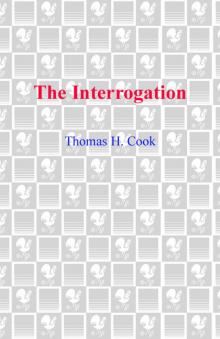 The Interrogation
The Interrogation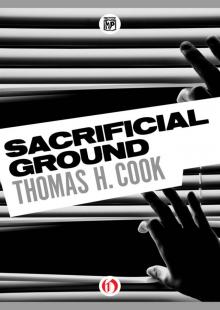 Sacrificial Ground
Sacrificial Ground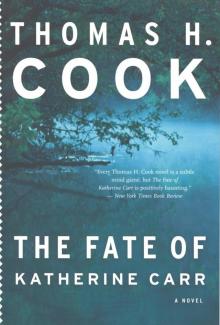 The Fate of Katherine Carr
The Fate of Katherine Carr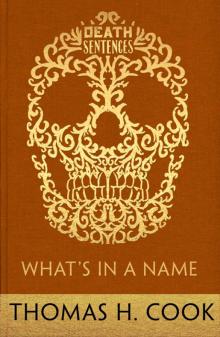 What's In A Name
What's In A Name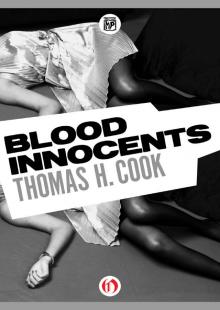 Blood Innocents
Blood Innocents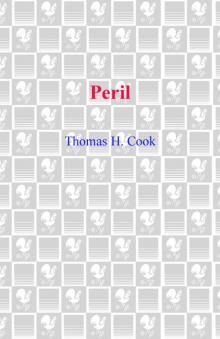 Peril
Peril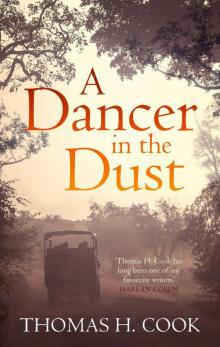 A Dancer In the Dust
A Dancer In the Dust Breakheart Hill
Breakheart Hill The Chatham School Affair
The Chatham School Affair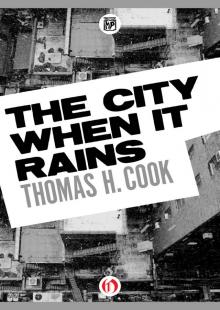 The City When It Rains
The City When It Rains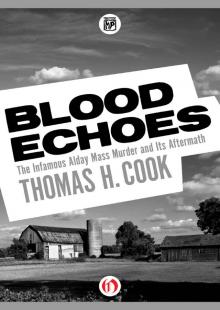 Blood Echoes
Blood Echoes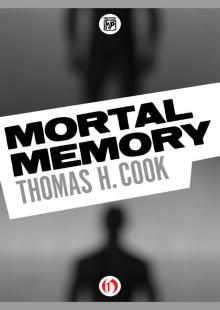 Mortal Memory
Mortal Memory Evidence of Blood
Evidence of Blood Into the Web
Into the Web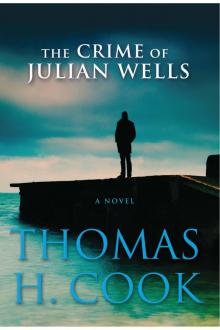 The Crime of Julian Wells
The Crime of Julian Wells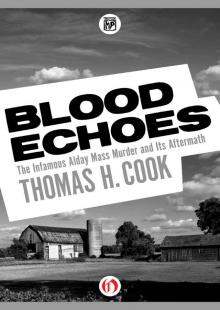 Blood Echoes: The Infamous Alday Mass Murder and Its Aftermath
Blood Echoes: The Infamous Alday Mass Murder and Its Aftermath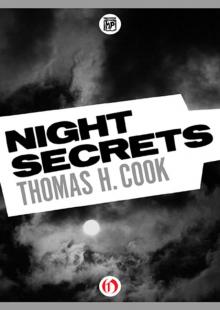 Night Secrets
Night Secrets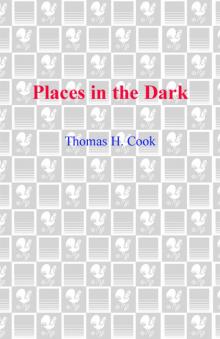 Places in the Dark
Places in the Dark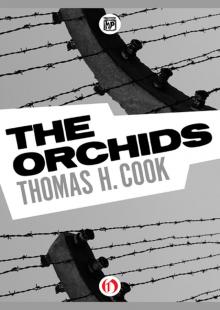 The Orchids
The Orchids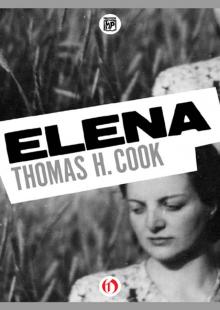 Elena
Elena Streets of Fire
Streets of Fire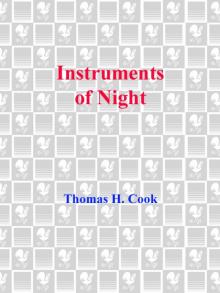 Instruments of Night
Instruments of Night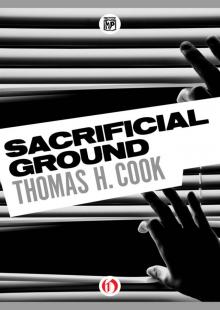 Sacrificial Ground fc-1
Sacrificial Ground fc-1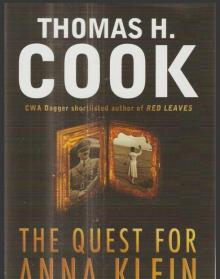 The Quest for Anna Klein
The Quest for Anna Klein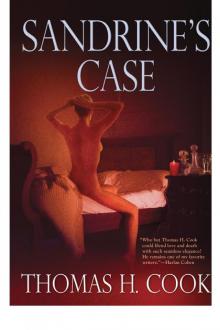 Sandrine's Case
Sandrine's Case Quest for Anna Klein, The
Quest for Anna Klein, The Fatherhood
Fatherhood Flesh and Blood
Flesh and Blood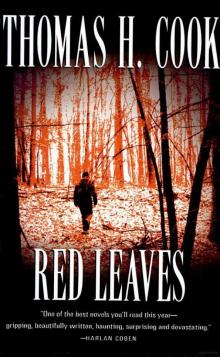 Red Leaves
Red Leaves